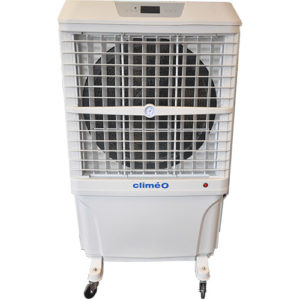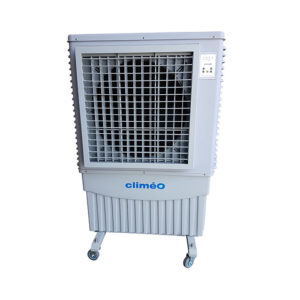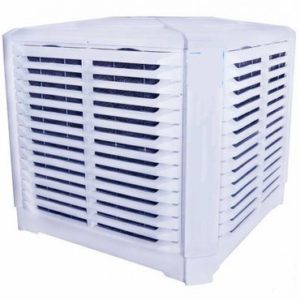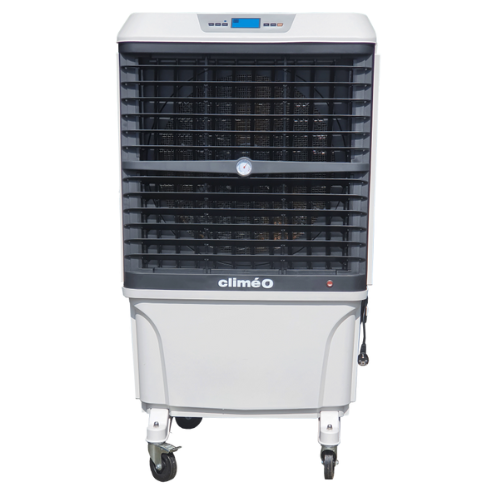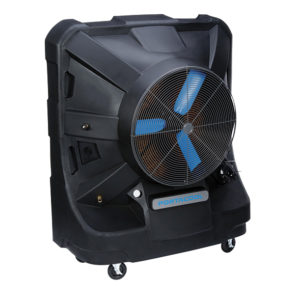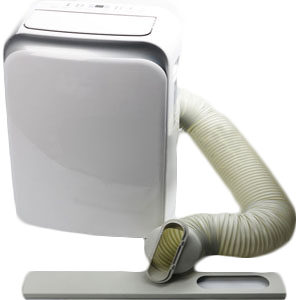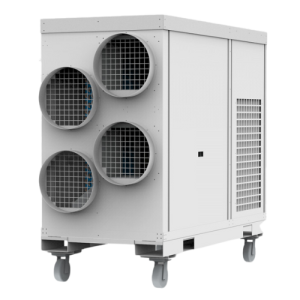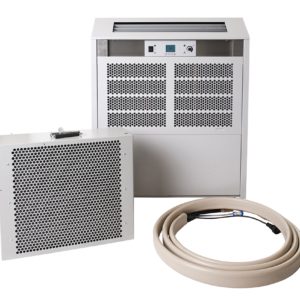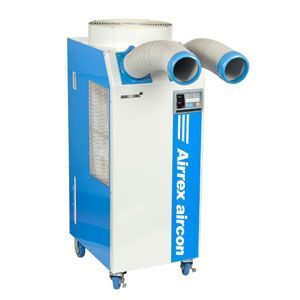Air cooler or air conditioner: Polypoles tells you everything!
Air coolers and air conditioners: 2 very different systems for the same purpose. Understand the differences in operation.
How does the air cooler work?
The air cooler is a product that uses a natural phenomenon based on the evaporation of water on an exchange medium.
It’s also known as adiabatic air cooling.
In concrete terms, the ambient air you wish to cool is drawn in by a fan through the media, which is constantly humidified with water.
As a result, the incoming air is cooled, and cooling gains can be in the order of 5°C to 10°C, and even up to 15°C if the air drawn in is very hot and dry!
On average, the unit’s reservoir needs to be “topped up” once every 8 hours of use.
To do this, use a jug or watering can to fill the reservoir.
You can also connect the cooler to a garden hose, or install an automatic refill system.
How does an air conditioner work compared to an air cooler?
An air conditioner comprises an evaporator (cold zone) and a condenser (hot zone). The refrigerant gas in a closed circuit is compressed and expanded by the action of the compressor. The advantage of a correctly sized air conditioner is that you can regulate your premises to a certain temperature. As a relatively expensive piece of technological equipment, an air conditioner is best suited to well-insulated premises or very specific needs (server room, machine, temperature-controlled work area…). Power consumption, however, is much higher than that of an air cooler. In a building with a 30 kW heat input, an air-conditioning system will consume around 10 kW, while an air-cooling unit will consume just 1 kW. Water consumption, especially in summer, will be around 25 m3 over the season. The water used will return to the atmosphere or to rainwater, as part of the natural water cycle.
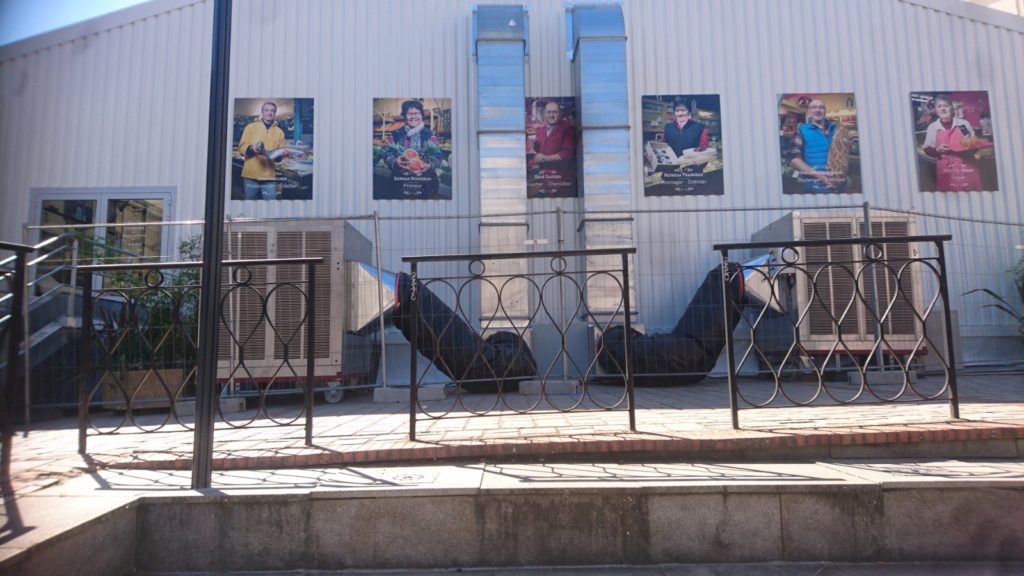
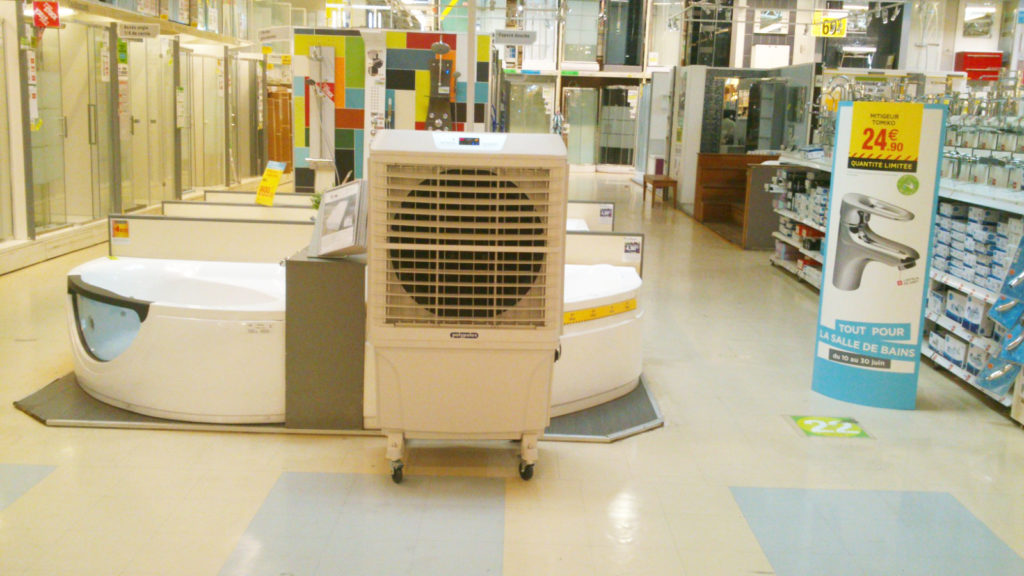
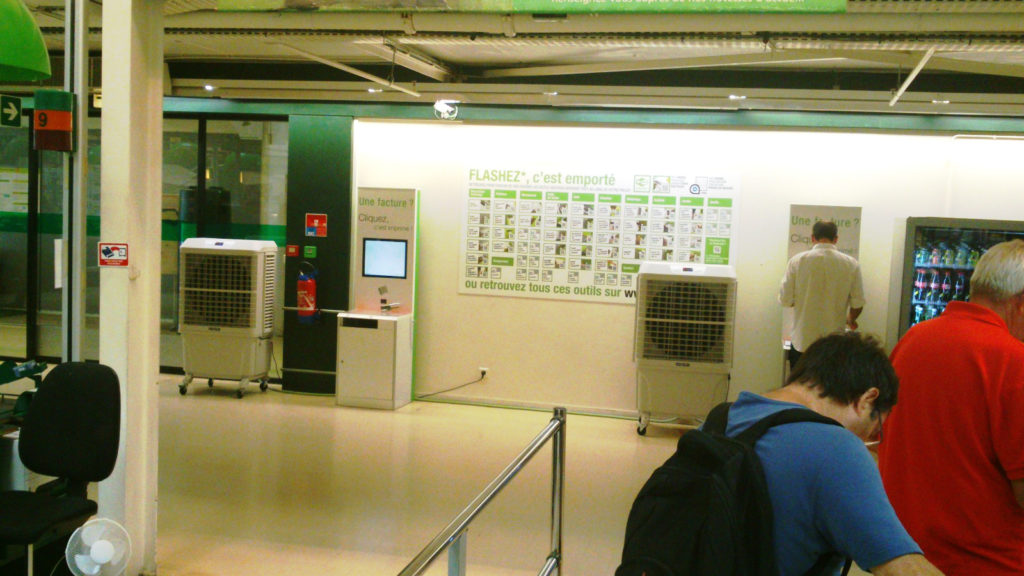
What are the limits of the air cooler?
and when can’t it be used?
It should not be used in the following situations:
- Do not use the air cooler in a closed room, as the air is not renewed and becomes saturated with humidity.
- It should not be installed in server info rooms, or in rooms with electrotechnical equipment, as this could damage them.
- Coolers should not be used when it’s raining, as the air is saturated with moisture.
What are the advantages of an air cooler?
Economic benefits
Economically speaking, an air cooler is a more affordable air treatment solution than an air conditioner. Installation is extremely simple and requires no commissioning costs, unlike air conditioning, which can only be installed by a qualified technician. Over its lifetime, an air cooler is also much more cost-effective. In fact, the power consumption of an air cooler is over 90% lower than that of an air conditioner, having a direct impact on electricity costs. Overall, the total cost of an air cooler is estimated at 50% less than that of an air conditioner, for an almost similar result, and a positive environmental impact. Ecological benefits:sustainable development and regulations Since the Kyoto agreements came into force in 2005, signatory countries, including France, have committed to reducing their carbon footprint. The impact of air conditioning, its refrigerant gases and electricity consumption on the planet has been highlighted. Manufacturers must therefore find solutions not only for the refrigerants used, but also for the performance of air-conditioning products. The most ecological solution for saving energy and limiting the ecological footprint is air cooling.
- No refrigerant gases or chemicals
- Very low power consumption
- Optimized water consumption, depending on outdoor temperature
- A possible use for rainwater harvesting: a double ecological solution
- The water used is not polluted: some of it evaporates and some is discharged into the rainwater.
The natural water cycle is thus respected.
Discover our air cooler catalog
You can rely on our technical department to provide you with reliable solutions and quality equipment. For technical information, questions, sizing or a quotation, contact us!

